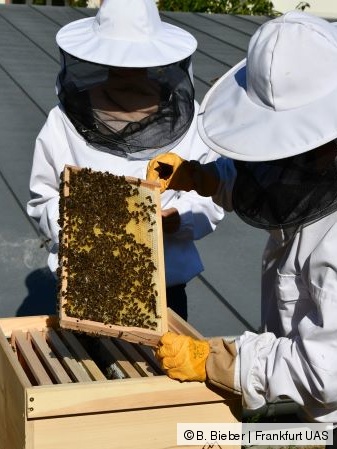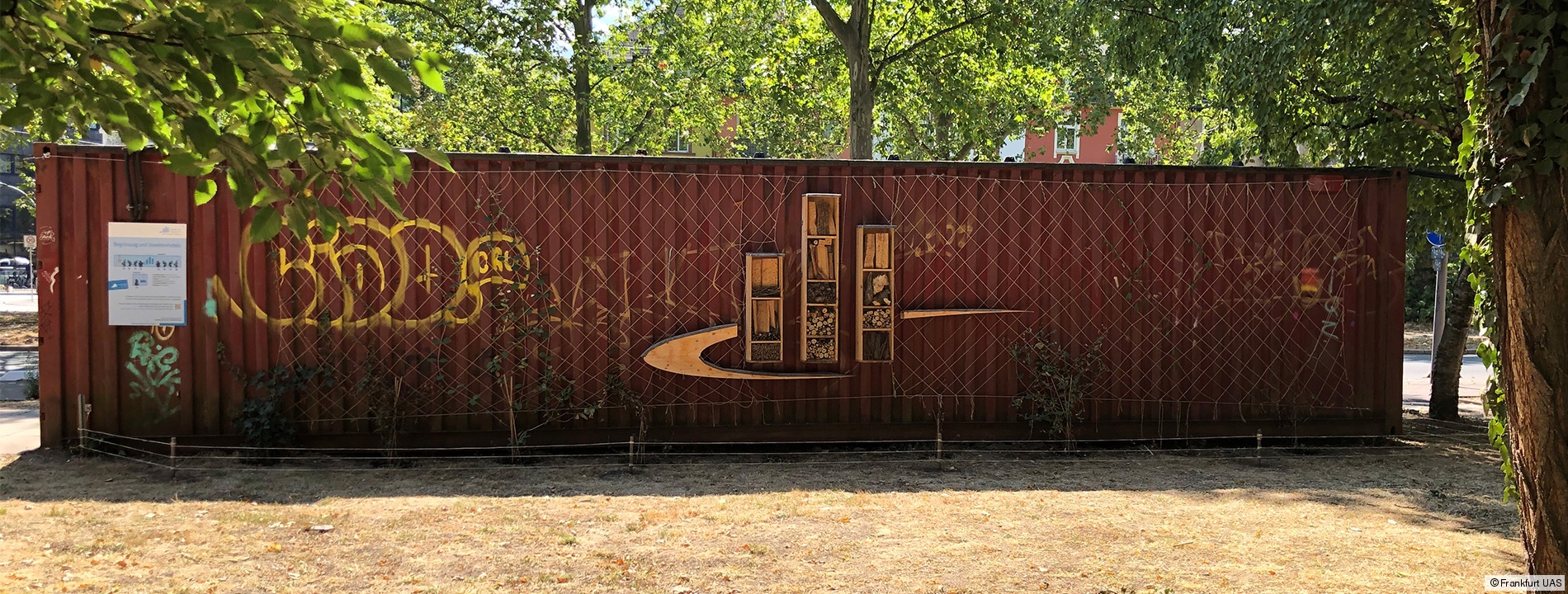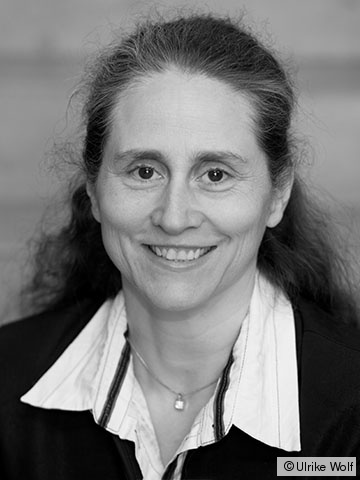Tiny-Studio Lab
The Tiny-Studio-Lab is a REACT-EU /EFRE project funded by the European Union. From April 2023, the Tiny-Studio-Lab will make it possible to test concepts and prototypes from research and development for buildings on a 1:1 scale under real conditions. This test building also offers the opportunity to show systems and components in operation and for students to try out new ideas together. The Tiny Studio Lab thus promotes the more sustainable planning, construction and operation of buildings and provides an environment for experiments and new developments that can also be transferred to university operations and campus development.
The building's facade elements will be interchangeable so that new wall structures can be tested regarding different criteria. For example, it is planned to test a module with facade-integrated ventilation and a module with a green facade combined with PV elements. In addition to cooling and ventilation, light and acoustics will also be analysed. A reversible air-to-water heat pump, an air-conditioning system and a PV system as well as sophisticated measurement technology are integrated into the building.
Campus greening & increasing biodiversity
As species extinction is one of the greatest challenges for future generations and life on earth alongside climate change, we are addressing the issues of campus greening and increasing biodiversity on campus. This includes, for example, the establishment of bee colonies, the installation of insect hotels and the unsealing of surfaces. Students have dealt with this topic in courses of the Interdisciplinary General Studies (ISG) in the teaching module "Sustainability Strategy of Frankfurt UAS - think globally, act locally", among others, but also drafts from other courses dealt with the topic of campus greening and increasing biodiversity. These drafts and ideas, as well as suggestions from the company suggestion scheme (BVW) and individual measures from the list of 111+ measures, are being incorporated into a study on campus greening and increasing biodiversity. The study explores the options for greening the outdoor areas, including the facades. The aim is to increase biodiversity on the campus and show potential for desilting, while still guaranteeing functional and building law requirements.
Bee colonies

In order to increase biodiversity on campus, several bee colonies were established on the campus of Frankfurt University of Applied Sciences in June 2021. Bees, along with many other species, are important for the existence of ecosystems on our planet because they pollinate a large proportion of plants.
We would be delighted if you would like to sponsor a bee or give one as a gift for €25 per year. For further information, please contact the BüroN team.
The idea for establishing the bee colonies was submitted as part of the company suggestion scheme and won an award. The search for a suitable location was carried out as part of the Interdisciplinary General Studies (!SG) as a project on the cross-cutting topic of sustainability. Colleagues from Facility Services, the safety officers and the people who submitted the proposal supported the team in choosing the location. The project was funded by the Förderverein der Frankfurt UAS e.V. Many thanks to everyone involved!
A green roof on building 4 of Frankfurt UAS was chosen as the location. The bees can be observed from the stairwell of Building 4 from the 2nd floor.
Insect hotel
An insect hotel on the back of the container on Nibelungenallee is a replica of the university's logo, is made of wood and ensures more biodiversity on campus. The idea for this design and the placement of the insect hotel on the container came about as part of the Interdisciplinary General Studies (ISG) teaching project. The aim is to increase biodiversity on campus.
The project was funded by the Frankfurt Foundation for Research and Education as part of a fundraising campaign.
Nectar bar for moths
Cooperation with award-winning project: newly planted wild shrubs on the campus flowerbeds ensure more biodiversity.
The raised bed in front of the cafeteria and the bed on the side of the children's house will soon be richly laid for pigeon-tails, blood droplets and co. The planting campaign is part of the "Nectar Bar" project to save the biodiversity of day and night butterflies, which won the 1st Frankfurt Biodiversity Ideas Competition. Our university was able to initiate a cooperation here, so that in April 2024 the graduate biologist and botanist Monika Peukert and Christoph Schuch, Managing Director of Landschaftspflegeverband Main-Taunus e.V. and founder of the Herbs & Wild Perennials department at the Hattersheim Schlockerhof of EVIM Behindertenhilfe, personally came to the campus with large containers for "Nektar-Bar" and spent a day planting around 280 moth-friendly wild perennials - robust, native plants such as dost (also known as wild marjoram), silverleaf, night violet or nettle, which are a welcome source of food for moths and cope well with heat and drought. In May, the underground car park light well was also planted with climbing plants.
Information on the Nectar Bar project can be found at: https://nektar-bar.de/
Drinking Fountain
The drinking fountain is located in building 3, in the library.
Using the water station is inexpensive and saves CO2 emissions: Drinking water from the tap produces an average of 0.35g CO2 per litre. By contrast, 1 litre of water from a discount store produces 202.74g of CO2. That is 586 times more CO2 per litre than tap water! In Germany, an average of around 180 litres of bottled water is consumed per year. That's over 3 million tonnes of CO2 every year, even though tap water in Germany is regularly subject to strict testing.1
You can also find the exact location on Google Maps or using the following coordinates: 50.131225, 8.692331



